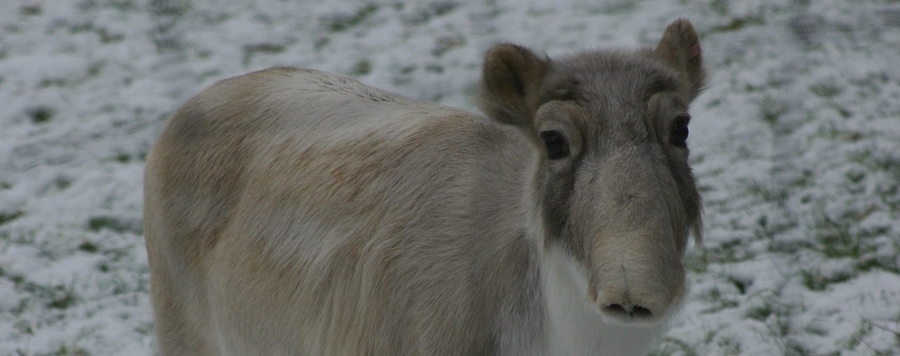
Saiga antelopes at Cologne Zoo
The saiga (Saiga tatarica, Bovidae, Cetartiodactyla) is facing a precarious situation in the wild and unfortunately also zoos have failed so far in establishing a stable captive population. Cologne Zoo was one of the most successful zoos in holding and breeding this endangered species. We analysed life history and breeding of the Cologne animals. We highlight differences between wild and captive saigas and potential trouble spots for captive breeding. Being seasonal breeders, oestrus length usually lasted 1–2 days with an average time of 19.85 days between oestrus periods if not pregnant. Gestation lengths lasted 133–151 days with gestations of twins 4.39 days shorter on average than for one lamb. Bearing twins was not a rule for the Cologne saigas. We found correlations between litter size and the age of the female or the number of births of the female, respectively. A disparity between the theoretically possible number of offspring and the actual number born emphasises the need to safeguard continuous breeding, to prevent the loss of the few years in a female’s breeding life. The information that emerged from our study will be valuable if future captive breeding of saigas is intended.






